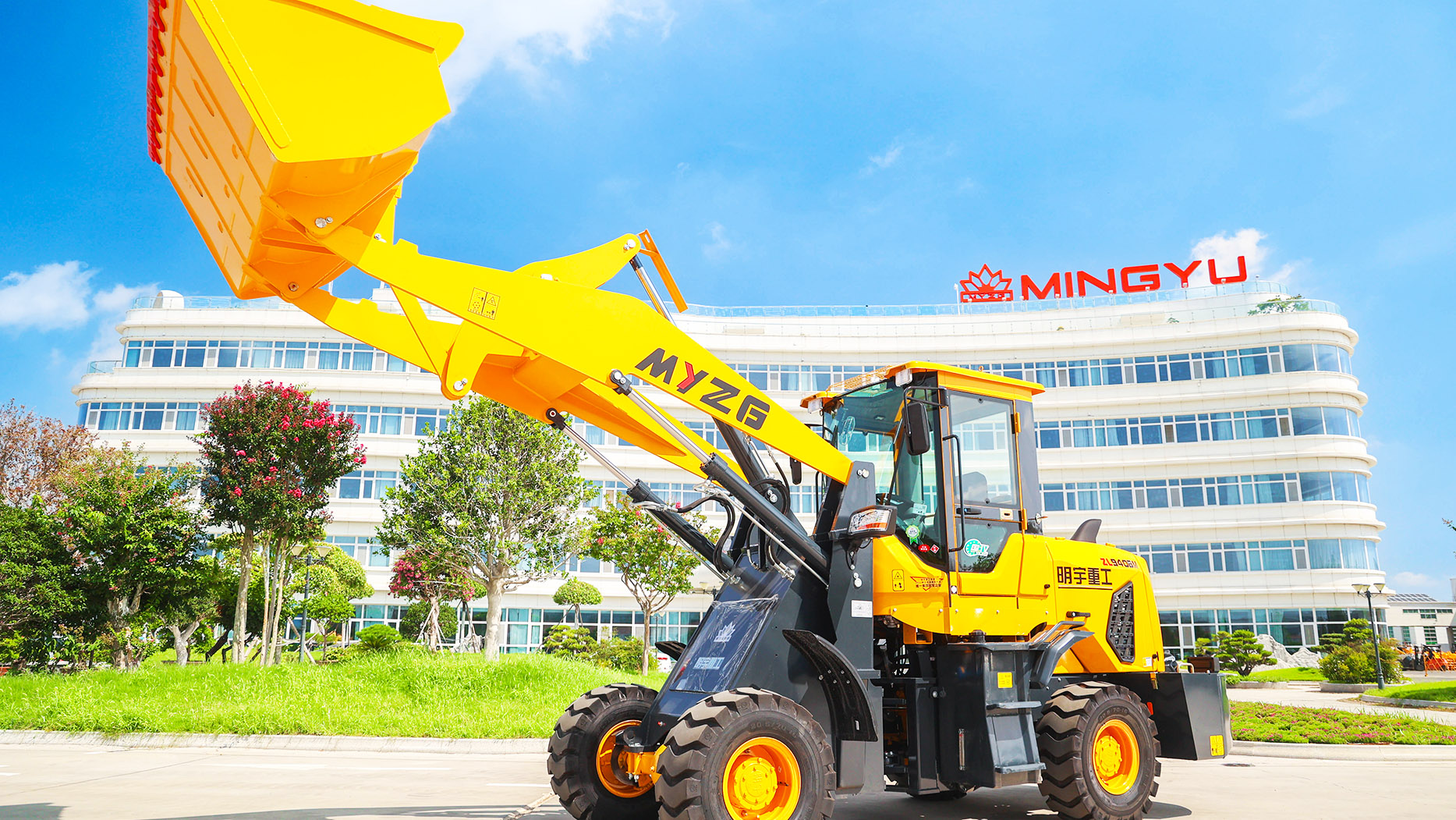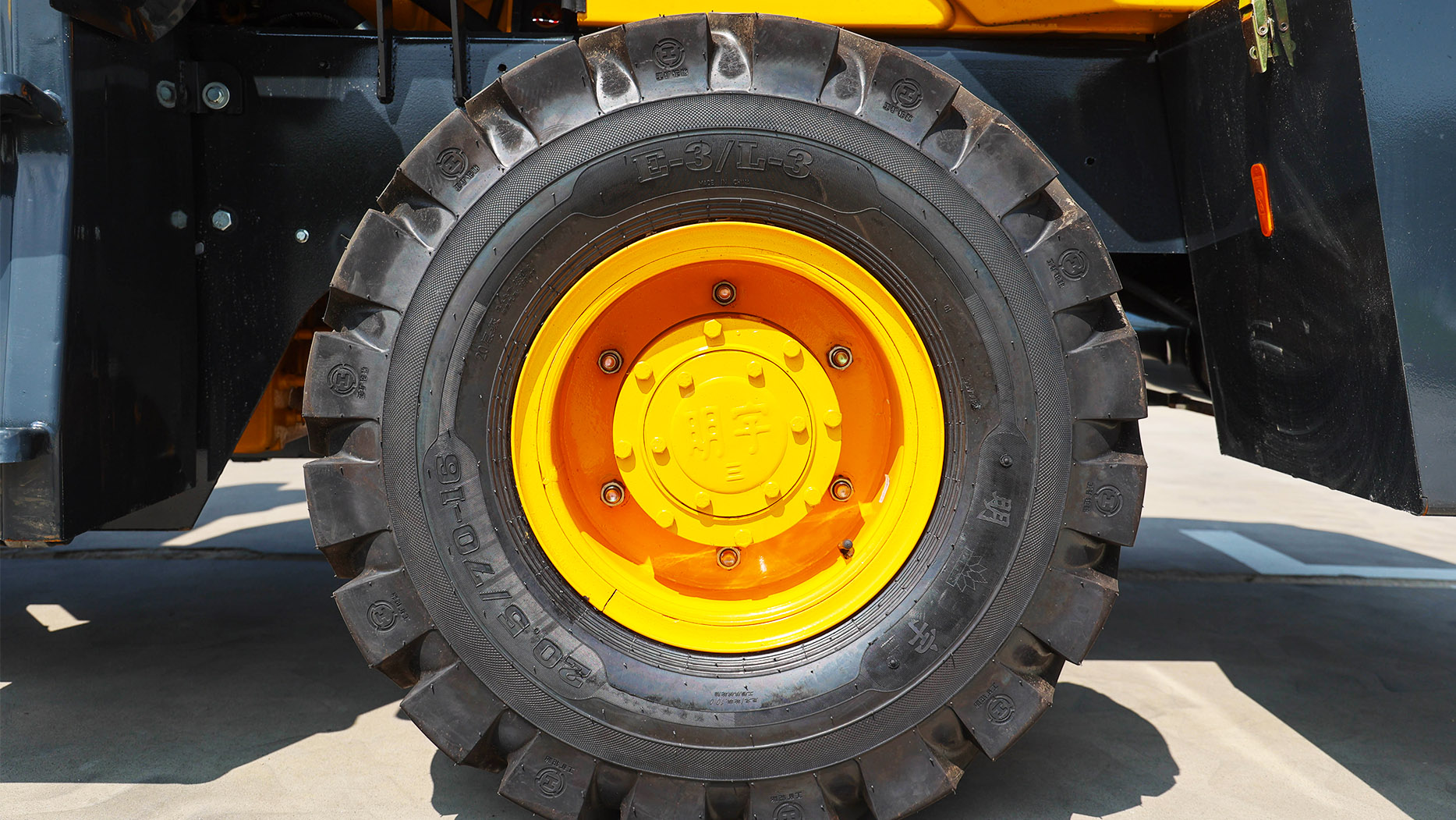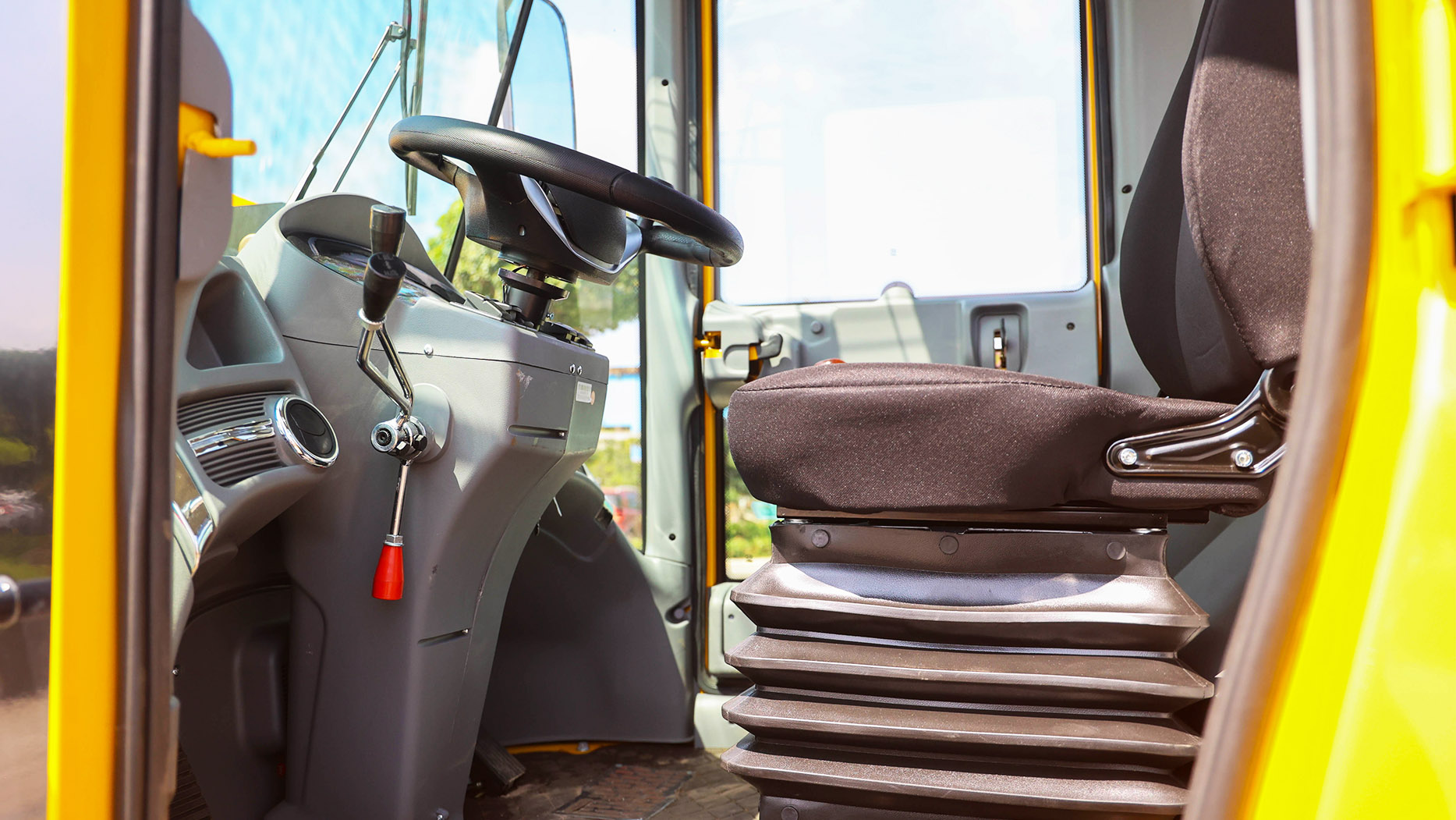What Not to Do in a Wheel Loader: A Guide to Avoiding Common Mistakes and Ensuring Safety
Wheel loaders are versatile machines used in various industries, from construction and agriculture to mining and material handling. While powerful and efficient, they can also be dangerous if not operated correctly. This article will outline critical "don'ts" for wheel loader operators to enhance safety, prevent equipment damage, and maximize productivity.
Operating Beyond Capacity:
Overloading: Exceeding the wheel loader's rated capacity can lead to severe consequences. Overloading can:
Damage the machine: Strain the engine, transmission, hydraulics, and tires.
Compromise stability: Shift the center of gravity, increasing the risk of tipping over, especially when turning or traveling on uneven ground.
Cause structural failure: Buckling of the boom, arms, or frame.
Increase the risk of spills: Leading to material loss and potential hazards.
Lifting excessively high: Lifting loads too high can also destabilize the machine and increase the risk of tipping. Always adhere to the manufacturer's recommended lifting height limits.
Neglecting Pre-Operational Checks:
Skipping inspections: Before starting work, conduct a thorough pre-operational inspection. Check for:
Fluid levels: Engine oil, hydraulic fluid, coolant, and fuel.
Tire pressure: Ensure proper inflation for optimal performance and stability.
Leaks: Check for any fluid leaks, which can indicate potential problems.
Controls: Test all controls (steering, brakes, throttle, attachments) for proper function.
Lights and signals: Ensure all lights and signals are working correctly.
Structural integrity: Inspect the machine for any signs of damage, such as cracks or dents.
Ignoring warning signs: Pay close attention to any warning lights or alarms that may indicate a potential problem. Do not operate the machine if you notice any issues.
Unsafe Loading and Unloading:
Improper loading techniques:
Uneven loading: Avoid loading materials unevenly, as this can shift the center of gravity and increase the risk of tipping.
Using the bucket as a scoop: Never use the bucket to scoop up loose material while traveling, as this can destabilize the machine.
Loading over obstructions: Avoid loading over obstructions, as this can damage the bucket or the machine.
Unsafe unloading:
Unloading on slopes: Avoid unloading on slopes, as this can cause the material to roll back onto the machine.
Unloading near drop-offs: Be extremely cautious when unloading near drop-offs or embankments.
Operating in Unsafe Conditions:
Working on unstable ground: Avoid operating on unstable ground, such as mud, snow, or ice.
Operating in confined spaces: Be extremely cautious when operating in confined spaces, such as tunnels or narrow alleys.
Operating in hazardous areas: Avoid operating in areas with overhead power lines, flammable materials, or other hazards.
Improper Travel and Turning:
Traveling at excessive speeds: Avoid traveling at excessive speeds, especially on uneven ground or when carrying a load.
Making sharp turns: Avoid making sharp turns, especially when carrying a load. This can cause the load to shift and increase the risk of tipping.
Traveling over obstacles: Avoid traveling over obstacles, as this can damage the machine or cause the load to spill.
Neglecting Maintenance:
Skipping regular maintenance: Regular maintenance is crucial for ensuring the safe and efficient operation of the wheel loader.
Using incorrect fluids: Always use the correct fluids and lubricants recommended by the manufacturer.
Improper repairs: Only qualified technicians should perform repairs on the wheel loader.
Operating Under the Influence:
Operating while intoxicated or impaired: Never operate a wheel loader while under the influence of alcohol or drugs.
Ignoring Safety Procedures:
Not wearing appropriate personal protective equipment (PPE): Always wear appropriate PPE, including:
Hard hat: To protect your head from falling objects.
Safety glasses or goggles: To protect your eyes from debris.
Hearing protection: To protect your hearing from loud noise.
Work gloves: To protect your hands.
Steel-toed boots: To protect your feet.
Disregarding traffic signals and signs: Always obey traffic signals and signs when operating the wheel loader on a job site.
Failing to communicate with other workers: Communicate with other workers on the job site to avoid collisions and other accidents.
Improper Attachment Use:
Using incompatible attachments: Only use attachments that are compatible with the wheel loader.
Operating attachments without proper training: Ensure that all operators are properly trained on the use of any attachments they will be operating.
Overloading attachments: Avoid overloading attachments, as this can damage the attachment or the machine.
Failing to Conduct Regular Safety Training:
Insufficient operator training: Ensure that all operators have received adequate training on the safe operation and maintenance of the wheel loader.
Lack of refresher training: Provide regular refresher training to keep operators up-to-date on safety procedures and best practices.
By adhering to these guidelines and avoiding these common mistakes, wheel loader operators can significantly enhance safety, prevent equipment damage, and improve overall productivity. Remember, safety should always be the top priority when operating any heavy equipment.
Further Considerations:
Job site-specific safety rules: Establish and enforce job site-specific safety rules and procedures.
Regular safety meetings: Conduct regular safety meetings to discuss safety concerns and reinforce safe work practices.
Implementing a safety management system: Consider implementing a comprehensive safety management system to identify and mitigate potential hazards.
By following these recommendations and cultivating a strong safety culture, you can create a safer and more productive work environment for all.
Post time:Jan.17.2025



